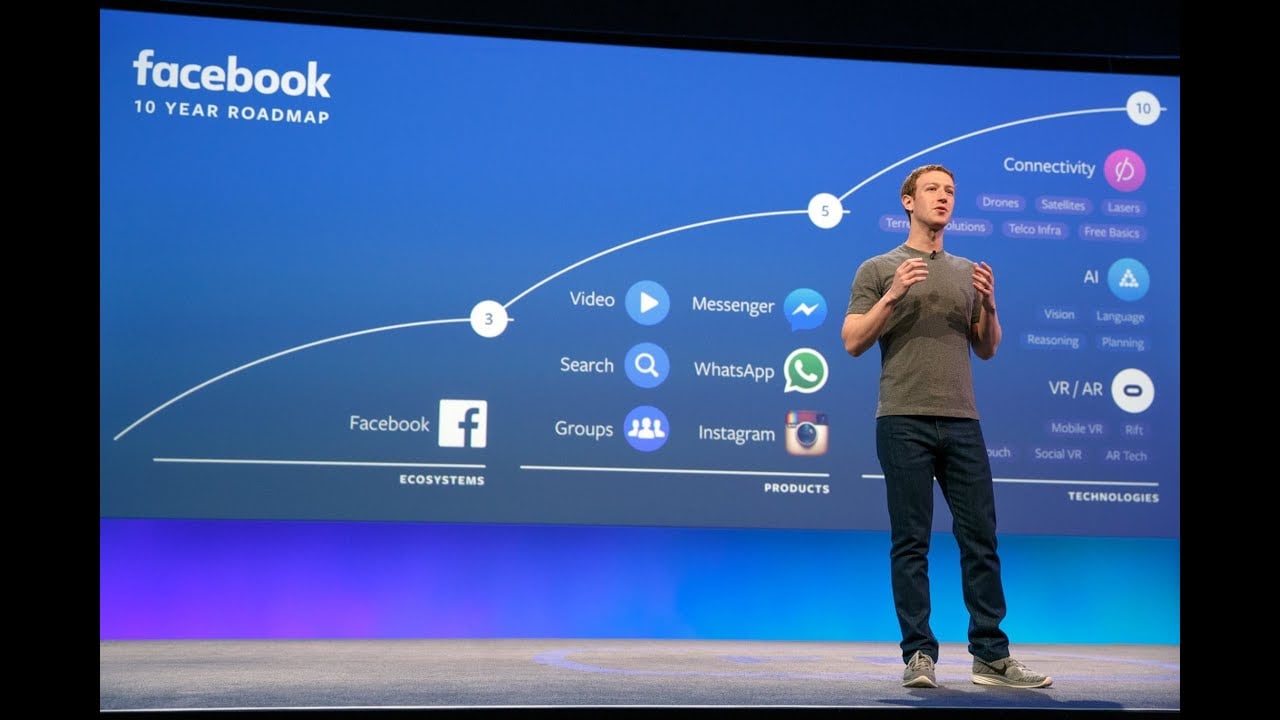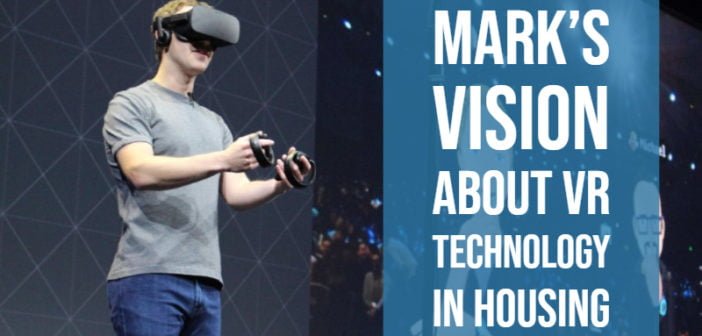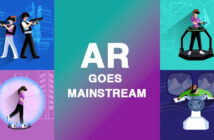The last couple of years have not been kind to Facebook and its founder-CEO Mark Zuckerberg. The fallout of the Cambridge Analytica scandal lingered and saw him being grilled by the US Congress in 2018. Now Zuckerberg shared his thoughts on Virtual Reality.
Facebook’s plan of its own cryptocurrency Libra is doubtful as prominent backers such as Paypal, Visa, and Mastercard have withdrawn. Facebook sought regulatory approval in Switzerland and has so far not been successful. Mark Zuckerberg was yet again grilled by the Congress in October 2019 about his crypto plans.

It comes as no surprise therefore that both Mark and Facebook have decided that 2020 will be the year (and decade) when the company turns around from its recent failures – share prices dipped to a low of $133 from high of $207 at one point – and is again seen as a major tech player.
Mark’s Vision About Virtual Reality Technology In Housing
On January 10th Zuckerberg announced in a Facebook post that he would henceforth be thinking long term.
He has spent the last decade developing Facebook as a brand, in managing acquisitions such as WhatsApp, and growing Instagram to become a significant social media platform that surpassed Snapchat.
Instead of thinking about further strategic acquisitions, Facebook would look at consolidating its platform with an eye to 2030.
A large part of this would be the use of virtual reality technology in housing.
The housing problem in cities has been addressed by Facebook before. In October of last year, the Menlo Park-based tech company had pledged a billion dollars to alleviate California’s affordable housing crisis.
Since that announcement happened the day before Zuckerberg was to testify before Congress, many saw it as nothing more than a publicity gimmick.
However, in his January 10th post, Zuckerberg makes his strategy clear.
The current housing crisis around the world is because more and more people are moving to urban areas in search of employment.
Through the use of Virtual Reality an employee could be present in the office from across the world. This would negate the need for staying within a few miles of their place of employment and the pressure on cities would ease thus easing the housing crisis.
How Would Augmented Reality Real Estate App Help
At the core of his strategy must be Facebook’s acquisition of Oculus back in 2014. In the 2019 edition of F8, the company launched the new Oculus for Business display hardware.
Facebook has stated that it is targeted at large businesses, and the hardware has been optimized for allowing companies to reshape the way in which they do business through Virtual Reality.

It is clear that after dominating social media and becoming a significant avenue for digital marketing, Facebook sees its future in some sort of proprietary hardware-software combination like Windows 10 and Surface Pro from Microsoft.
The company is not moving away from its core business but simply de-risking itself with another revenue channel comprising of augmented reality real estate app.
The Application Of Virtual Reality For Real Estate
The use of Virtual Reality and Augmented Reality would eliminate the need for an employee to be physically present in the office.
Just as computers and word processing made typewriters obsolete, VR would make physical office space mostly redundant.
There is a lot of truth to what Zuckerberg says.
Not only has agriculture stopped contributing to employment due to mechanization and lowering profits of farmers, but vast swathes such as the rust belt in the Midwest has seen new generations migrate away to major cities in search of work how VR can solve the housing crisis.
This is not only observed in the US but across the world, most noticeably in China and India, where some estimates claim that 60% of the vast population now live in urban areas.
The use of VR headsets and other hardware would make telecommuting a much more seamless experience.

A multiethnic Business team using virtual reality headset in night office meeting Developers meeting with virtual reality simulator around table in creative office.
Though video conferencing has existed for more than a decade, it is still two dimensional, and very limited interaction is possible. It is mostly still a phone call where one can not only hear but also see the other party.
VR promises to clone real-life collaboration with “avatars” meeting in cyberspace, exchanging opinions and notes, able to observe body language just as in real life.
The use of virtual reality for real estate crisis is just a matter of time. Just as the HTC Wallaby was the first (and worst) touchscreen phone in 2003 (pre-dating the first iPhone by 4 years), and by 2013 everyone had an iPhone or Samsung Galaxy, the use of VR everywhere is just a matter of very few years.
Conclusion
Zuckerberg’s dreams of a new computing platform that would take the world by storm, much as the cell phone revolution did earlier in the millennium are not unfounded at all.
Of course, many jobs cannot be done by VR – such as those in the service industry like hospitality. But if even a fifth of office workers can telecommute most of the time, the cities would have much-needed respite and be able to provide low-cost housing for those who are impoverished.




